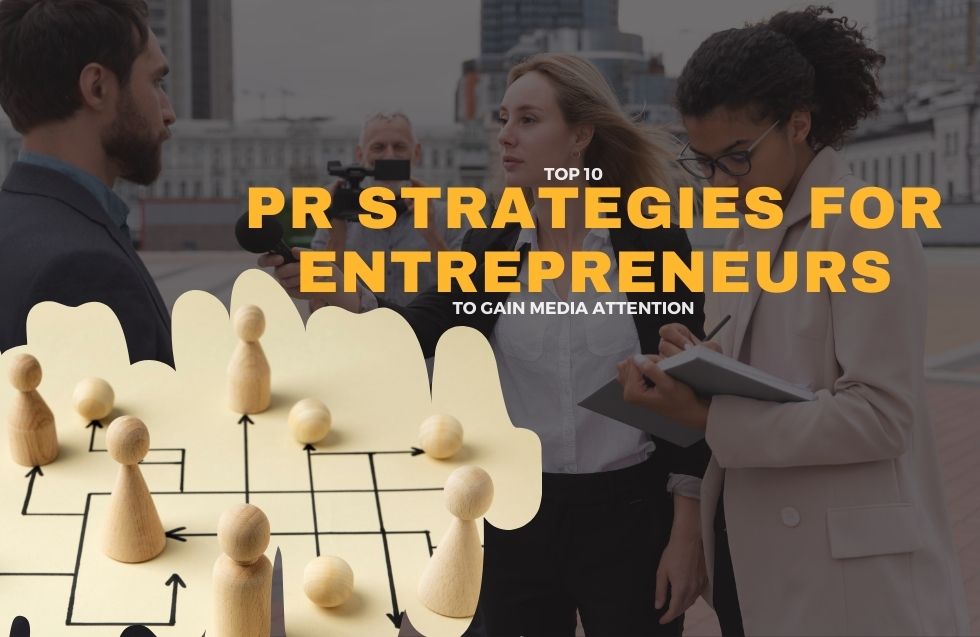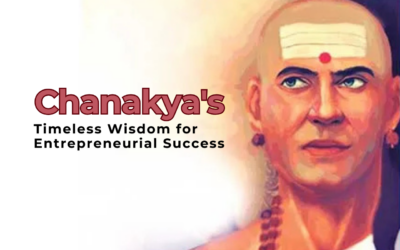In today’s competitive business landscape, gaining media attention is vital for entrepreneurs looking to grow their brands and increase visibility. Public relations (PR) is a powerful tool for Strategies for Entrepreneurs to connect with their target audience and enhance their credibility. Here are the top 10 PR strategies that can help you gain media attention and elevate your business.
1. Create a Compelling Brand Story
A well-crafted brand story can make you stand out in a crowded marketplace. Journalists and media outlets are always looking for interesting narratives. Focus on what makes your journey unique—whether it’s overcoming challenges, having a socially responsible mission, or launching an innovative product. Your story should reflect your values and resonate with your audience.
Example: TOMS Shoes built its brand on the story of social impact with its “One for One” initiative. This unique story garnered significant media attention because of its heartfelt and cause-driven message.
2. Leverage Press Releases
Press releases remain one of the most effective ways to announce newsworthy events, product launches, or business achievements. To capture media attention, ensure your press release is timely, relevant, and formatted properly. Make sure the content is concise, includes quotes from key personnel, and clearly states the newsworthiness of the announcement.
Tip: Tailor your press releases to suit different media outlets, emphasizing what makes your story relevant to their audience.
3. Build Relationships with Journalists
Journalists receive countless pitches daily, so building personal relationships with them can give you an edge. Follow reporters in your industry on social media, engage with their content, and provide thoughtful insights into their articles. When you reach out with your pitch, your familiarity can make them more likely to pay attention.
Example: Elon Musk has maintained strong relationships with tech and business journalists, offering exclusive news to certain outlets. His candid interactions with the press have also earned him widespread media coverage.
4. Use Social Media Strategically
Social media is a powerful platform to amplify your brand’s message and build media relationships. Share newsworthy content strategies for entrepreneurs, engage in conversations about trending topics, and position yourself as a thought leader in your industry. Regularly post updates about your business, interact with industry influencers, and tag relevant media outlets to attract attention.
Example: Gymshark used Instagram to generate buzz and build a community around its brand. By working with fitness influencers and regularly posting engaging content, Gymshark achieved media attention without a huge marketing budget.
5. Offer Expert Commentary
Becoming a go-to expert in your field can earn you significant media coverage strategies for entrepreneurs. Offer to provide expert commentary on industry trends, challenges, or news. Journalists often look for quotes from industry professionals to add credibility to their stories. You can use platforms like HARO (Help A Reporter Out) to connect with reporters seeking expert opinions.
Example: Neil Patel, a digital marketing expert, consistently shares insights on SEO and online marketing. His expert commentary has led to media appearances and guest articles in top publications, building his brand authority.
6. Collaborate with Influencers and Bloggers
Influencers and bloggers have large, dedicated followings that can help amplify your message. Partnering with relevant influencers in your industry can boost your visibility and give you access to new audiences. A well-executed collaboration can lead to media coverage, particularly if the influencer has strong relationships with reporters or media outlets.
Example: Daniel Wellington skyrocketed to fame by collaborating with social media influencers, who shared photos of themselves wearing the brand’s watches, generating tons of media coverage and consumer interest.
7. Organize or Participate in Industry Events
Hosting or participating in industry events can garner media interest strategies for entrepreneurs. Whether you’re speaking at a conference, sponsoring an event, or organizing a charity drive, media outlets often cover such events, especially if they’re high-profile. These opportunities allow you to showcase your expertise while also networking with potential media contacts.
Example: Salesforce CEO Marc Benioff often headlines major tech events, which leads to extensive media coverage for both himself and Salesforce. Event participation also increases your credibility.
8. Develop a Strong Online Presence
Having a well-optimized and professional website is crucial for gaining media attention. Media outlets may visit your site for background information before featuring you, so ensure your website showcases your brand story, achievements, media kit, and contact information. Regularly update your blog with valuable content to position yourself as an authority in your field.
Example: Buffer, a social media management platform, has an extensive blog that attracts media attention by publishing valuable content on social media trends and marketing strategies.
9. Use Video Content to Your Advantage
Video is a highly engaging format that can attract media attention. Create short, compelling videos that tell your story, highlight your product, or explain your mission. Share these videos across social media platforms, and consider pitching them to local TV stations, especially if the content is visually appealing or ties into current events.
Example: Dollar Shave Club went viral with its humorous and quirky launch video, which led to widespread media coverage, driving millions of views and making the brand a household name.
10. Engage in Thought Leadership
Publishing insightful articles or opinion pieces in industry publications, blogs, or on platforms like LinkedIn can establish you as a thought leader. Media outlets are more likely to approach someone with recognized expertise for comments or features. Consistently producing high-quality thought leadership content demonstrates your knowledge and increases your visibility in your industry.
Example: Richard Branson frequently writes thought leadership articles on LinkedIn, sharing his entrepreneurial journey, business tips, and life lessons. His articles consistently generate media coverage and public engagement.
Best Platforms for PR
- PR Newswire: Ideal for distributing press releases to thousands of journalists and media outlets.
- HARO (Help A Reporter Out): Connects you with journalists seeking expert sources. You can offer expert commentary or insights that may result in a media mention.
- Muck Rack: A media database that helps you track journalist activity, follow their work, and send personalized pitches.
- Cision: A comprehensive platform for managing your PR campaigns, including media outreach and analytics.
- LinkedIn: Great for publishing thought leadership articles and connecting with journalists directly.
Effective Pitching Tips
- Personalize Your Pitches: Address the journalist by name and explain why your story is relevant to their audience.
- Keep It Short and Concise: Journalists are busy, so get to the point quickly. Highlight the most newsworthy aspects of your story.
- Offer a Unique Angle: Make your pitch stand out by presenting a fresh perspective or offering exclusive insights or data.
- Follow Up Politely: If you don’t hear back, a polite follow-up email can keep your pitch top of mind.
PR Stats and Mediums
- 78% of journalists prefer email pitches, so focus on crafting compelling, clear subject lines and concise emails.
- 53% of businesses credit PR as a significant contributor to brand visibility and sales.
- Video press releases receive up to 55% higher engagement than text-only releases.
Common PR Mediums
- Press Releases: Ideal for announcing new products, partnerships, or company news.
- Interviews: TV, radio, or podcasts offer platforms to share your insights and expertise.
- Op-Eds/Guest Articles: Contributing an opinion piece to an industry publication can build your credibility and attract media attention.
- Social Media: An essential tool for sharing your brand’s message, connecting with your audience, and amplifying media coverage.
- Podcasts: A growing medium, podcasts provide opportunities for thought leadership, storytelling, and expert interviews.
Final Thoughts
Incorporating these PR strategies for Entrepreneurs gain valuable media coverage and elevate their brand’s profile. A successful PR campaign involves crafting a unique story, building strong media relationships, and consistently sharing valuable content. By leveraging the right tools and tactics, you can capture the attention of the media and establish your business as a leader in your industry.












